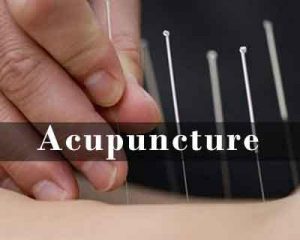- Home
- Editorial
- News
- Practice Guidelines
- Anesthesiology Guidelines
- Cancer Guidelines
- Cardiac Sciences Guidelines
- Critical Care Guidelines
- Dentistry Guidelines
- Dermatology Guidelines
- Diabetes and Endo Guidelines
- Diagnostics Guidelines
- ENT Guidelines
- Featured Practice Guidelines
- Gastroenterology Guidelines
- Geriatrics Guidelines
- Medicine Guidelines
- Nephrology Guidelines
- Neurosciences Guidelines
- Obs and Gynae Guidelines
- Ophthalmology Guidelines
- Orthopaedics Guidelines
- Paediatrics Guidelines
- Psychiatry Guidelines
- Pulmonology Guidelines
- Radiology Guidelines
- Surgery Guidelines
- Urology Guidelines
Acupuncture could relieve pain, reduce opioids need in cancer: JAMA study

Delhi: Acupuncture and/or acupressure may cause significant reductions in the intensity of cancer pain, reducing the need for opioids for the said purpose, suggests a recent study published in the JAMA Oncology journal.
Pain is a distressing symptom experienced by more than 70% of patients with cancer but inadequately controlled in nearly 50% of these patients. Although analgesics have been used for pain management, but have some drawbacks that pose challenges to manage pain in cancer patients. Drawbacks include addiction to analgesics and the adverse effects of pharmacological interventions.
Research into acupuncture and acupressure and their application for cancer pain have been growing, but the findings have been inconsistent.
Yihan He, RMIT University, Melbourne, Victoria, Australia, and colleagues conducted the study to evaluate the existing randomized clinical trials (RCTs) for evidence of the association of acupuncture and acupressure with a reduction in cancer pain.
For the purpose, the researchers analyzed 14 randomized trials comparing acupuncture or acupressure with control therapies (placebo, sham acupuncture, analgesics, usual care) in over 900 cancer patients.
Read Also: Breakthrough- Cannabis inhaler to control cancer pain shortly
Key findings of the study include:
- A total of 17 RCTs (with 1111 patients) were included in the systematic review, and data from 14 RCTs (with 920 patients) were used in the meta-analysis.
- Seven sham-controlled RCTs (35%) were notable for their high quality, being judged to have a low risk of bias for all of their domains, and showed that real (compared with sham) acupuncture was associated with reduced pain intensity (mean difference [MD], −1.38 points; I2 = 81%).
- A favorable association was also seen when acupuncture and acupressure were combined with analgesic therapy in 6 RCTs for reducing pain intensity (MD, −1.44 points; I2 = 92%) and in 2 RCTs for reducing the opioid dose (MD, −30.00 mg morphine equivalent daily dose, −37.5 mg to −22.5 mg).
- The evidence grade was moderate because of the substantial heterogeneity among studies.
Read Also: Acupuncture plus topical ibuprofen good for chronic knee pain relief in osteoarthritis
"This systematic review and meta-analysis found that acupuncture and/or acupressure was significantly associated with reduced cancer pain and decreased use of analgesics, although the evidence level was moderate," wrote the authors.
"This finding suggests that more rigorous trials are needed to identify the association of acupuncture and acupressure with specific types of cancer pain and to integrate such evidence into clinical care to reduce opioid use," they concluded.
The study, "Clinical Evidence for Association of Acupuncture and Acupressure With Improved Cancer Pain: A Systematic Review and Meta-Analysis," is published in the journal JAMA Oncology

Disclaimer: This site is primarily intended for healthcare professionals. Any content/information on this website does not replace the advice of medical and/or health professionals and should not be construed as medical/diagnostic advice/endorsement or prescription. Use of this site is subject to our terms of use, privacy policy, advertisement policy. © 2020 Minerva Medical Treatment Pvt Ltd